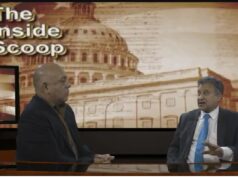by Henry L Chambers, Jr., Professor of Law at the University of Richmond. The author teaches voting rights and served as a special assistant attorney general for redistricting matters in the Virginia Attorney General’s office after Virginia’s post-2010 census redistricting.
Vote NO on Amendment 1.
Voting yes on Amendment 1 suggests Virginia is not only for lovers, but also for quitters. Redistricting is a political act that should be completed by the politically accountable branches of government unless those branches are incapable of doing so. Virginia’s General Assembly is capable of redistricting but does not appear to want to do the hard work of redistricting without gerrymandering.
The General Assembly has the duty to redistrict the House of Delegates, State Senate, and Virginia’s congressional districts under the Virginia Constitution. It should go without saying that the General Assembly has the duty to redistrict fairly, just as it has the duty to legislate fairly. Fairness suggests a strong preference for bipartisanship, though bipartisanship is not always required. If a minority party refuses to cooperate in good faith or if a minority party’s preferences are too far removed from the majority party’s conception of the common good, bipartisan agreement is not required. In those situations, a demand for bipartisanship is a demand for a minority party veto.
In the context of redistricting, hoping for bipartisanship may seem naive. However, the hope merely reflects an assumption that the General Assembly will do its job honorably. If the General Assembly is incapable of doing so, the General Assembly should be removed from the redistricting process.
Of course, Amendment 1 does not remove the General Assembly from redistricting. It constitutionally entrenches the General Assembly in the redistricting process, though in a manner that allows the General Assembly to deny political accountability.
Half of the Virginia Redistricting Commission’s (VRC) 16 members are legislators, and 6 of 8 of those legislators must agree to a map before it goes to the General Assembly for approval. Consequently, Amendment 1 leaves the General Assembly deeply embedded in a redistricting process the General Assembly seems unable to manage on its own. That is ironic.
Ultimately, Amendment 1 allows the General Assembly to abdicate its responsibility to redistrict appropriately while retaining the power to veto any redistricting plan it does not like. That is not good policy; it is cynical. If you want a new era in redistricting, vote NO on Amendment 1, then get to work on forcing the General Assembly to redistrict properly.













![Video: Sen. Mark Warner Says Last Night, “you saw an angry old man [Trump] giving a partisan screech that doesn’t solve anything”](https://bluevirginia.us/wp-content/uploads/2025/12/warner1218-100x75.jpg)

